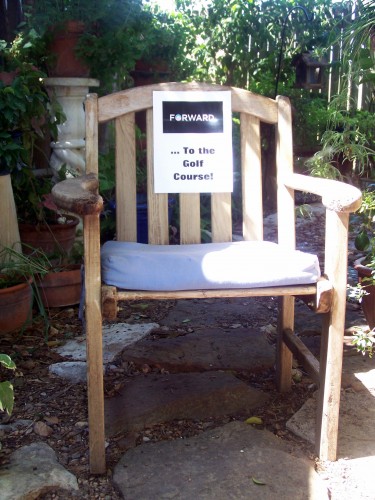Errol’s Song, by Adam Carroll
Month: September 2012
Macy’s Vs. Nordstrom
During Christmas time I used to occasionally shop at Nordstrom. A few things immediately jump out at you when you visit Nordstrom:
– The stores are immaculate
– The clothing is well organized
– The staff is extremely helpful and competent (and often extremely attractive)
The last thing that you’ll notice is the dent in your wallet. Nordstrom does have sales if you follow them, and for deals you go to Nordstrom Rack, where their clothes from last year (still mostly better than my current year) reside.
On the other hand, there’s Macy’s. In Chicago Macy’s took over Marshall Fields, so they have a giant, iconic store on State Street. I can’t speak for Macy’s elsewhere, but the Chicago store is quite impressive, but not nearly as nice as Nordstrom (the cool old architecture is better, but that’s about it).
However, at Macy’s, I’ve found something else – if you find someone there that can help you, there are amazing bargains to be had. I bought a suit and some men’s clothes and found a saleswoman who helped me and got her card and I now know where to find her when I visit.
She doesn’t even bother to show me items that are less than 60% off, and there are always complex sales and deals atop other sales that she finds, as well. Paying with a Macy’s card often gets another 10% off. She might tell me to pick up something like a suit after a certain date in order to take part in an upcoming sales event. Routinely items that are $650 on up with price tags end up “out the door” for $200 including tax (Chicago is at 10%+, remember) and alterations to boot.
This article in Business Week talks about JC Penny’s moving away from a “sale” strategy like Macy’s to more of an “everyday pricing” strategy like Wal-Mart. This is going disastrously for JC Penny’s, because unlike Apple, where they had a de-facto monopoly, JC Penny pretty much sells the same stuff as everyone else. Since the executive who runs it came from Apple, he just instituted what worked for him there, and now it is failing.
So, big chains like J.C. Penney and Lowe’s are trying to wean sale-addicted customers off of sales in favor of everyday low pricing. It’s the biggest shift in pricing in decades, but retailers have a long way to go to convince shoppers that predictable pricing is better than the temporary promotions that they’ve grown to love. In fact, early this year, nearly three-quarters of 1,000 shoppers surveyed by consumer research firm America’s Research Group said it would take discounts of at least 50 percent to get them to buy a given item. That’s up from 52 percent in 2005.
From my perspective, I will just keep riding the Macy’s train for everything as long as this woman keeps helping me. Her motivation is likely easy commissions (I pretty much buy anything she lays out for me) and I am very helpful for her time (probably lots of other customers complain). Whether or not this is “net” good for Macy’s, is another question altogether. Macy’s goal is likely to lure you in with off-price or on-sale merchandise and get you to buy some items that are full-price, where the profits per unit are astronomical by comparison. But that isn’t happening with my strategy. If it did start happening, I’d leave. So I guess I am one of those people “addicted to discounts” and some of the smarter employees recognize me as that (but one willing to buy) so it is a good relationship for both of us, perhaps less so for Macy’s.
Retailers – good luck getting people to change and go back to full-price attitudes once you’ve linked them with discounts. For me, at least, it isn’t happening.
Cross posted at LITGM
Around Door County September 2012
Since Jonathan always has great pictures of Florida wildlife so I thought I’d try it with this Door County amphibian.
A great sunset near Bailey’s Harbor, Wisconsin.
Harvey Mansfield on Elections and Democracy
Cross-posted from zenpundit.com
Professor Harvey C. Mansfield of Harvard University and a fellow at the Hoover Institution is famous for his scholarship on classical political philosophy (I often recommend his edition on Machiavelli’s Discourses on Livy) as well as his provocative commentary on social and political issues. While I liked his take on Machiavelli, I warmed to him further when, after his book on manliness came out and some reporter asked Mansfield if it was “manly” to carry a gun? He answered to the effect, “Yes, but not as manly as carrying a sword”.
Mansfield has a new article out in Defining Ideas on the nature of elections and democracy worth reading:
Are You Smarter Than a Freshman?
….Machiavelli believes that human beings are divided into the few who want to rule and the many who do not care to rule themselves but do not want to be ruled by others either. Then those who want to rule must conceal their rule from the many they rule if they wish to succeed. How can they do this? Machiavelli went about conceiving a “new mode of ruling,” a hidden government that puts the people “under a dominion they do not see.” Government is hidden when it appears not to be imposed on you from above but when it comes from you, when it is self-imposed.
